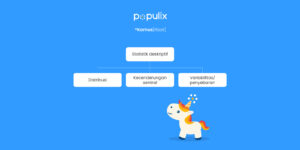In the first two articles of our series, we explored the essence of qualitative research and the core methods used to gather rich, detailed insights. Now, we turn our attention to the unique advantages that qualitative research offers, highlighting what it can unveil that quantitative research cannot.
Qualitative research provides depth and context to our understanding of consumer behavior. While quantitative methods are crucial for measuring trends and identifying patterns, qualitative research delves into the reasons behind these trends, uncovering the motivations, emotions, and experiences that drive consumer actions. This article explores the distinctive advantages of qualitative research and how it complements quantitative methods.
Capturing Depth and Nuance
One of the most significant strengths of qualitative research is its ability to capture the depth and nuance of human experiences. Through tailored discussions with open-ended questions and various probing techniques, researchers can uncover layers of the consumer’s mind beyond surface-level behaviors easily measured by quantitative surveys. Qualitative research dives deeper, decoding meanings—a practice rooted in semiotics, initially used by disciplines like anthropology and psychology. Unlike quantitative methods, which often focus on numerical data and broad trends, qualitative research delves into the intricate layers of human experience.
- Understanding Emotions and Motivations: Qualitative research uncovers the underlying emotions and motivations that drive consumer decisions. Through methods like in-depth interviews and focus group discussions, researchers explore the feelings, beliefs, and attitudes that influence consumer behavior.
- Detailed Personal Narratives: By listening to consumers’ stories and experiences, researchers gain rich, textured insights into their lives. These narratives provide a deeper understanding of consumer needs, preferences, and behaviors, offering invaluable context that numbers alone cannot provide.
- Beyond Surface-Level Data: While quantitative methods provide valuable data on consumer behaviors and preferences, they often lack the context needed to explain these trends. Qualitative research fills this gap by uncovering the underlying reasons behind consumer actions and decisions.
- Contextual Understanding: The importance of context in understanding consumer behavior cannot be overstated. Qualitative research provides detailed, situational insights that reveal how various factors influence consumer choices. By examining the broader context in which decisions are made, researchers can identify the key drivers of behavior and develop strategies that align with consumers’ needs and expectations.
Related article: Introduction to Qualitative Research: Unveiling the Depths of Consumer Behavior

Exploring Complex Social Interactions
Another key advantage of qualitative research is its ability to explore complex social interactions. Qualitative researchers see social interactions not just as random actions but as meaningful exchanges that reflect how consumers attach significance to their experiences with products or services. Group dynamics and cultural contexts play a significant role in shaping consumer behavior, and qualitative methods are particularly well-suited to capturing these influences.
- Group Dynamics in FGDs: Focus group discussions (FGDs) provide a unique opportunity to observe social interactions and group dynamics. By bringing together diverse participants to discuss a specific topic, FGDs reveal how social influences shape individual opinions and behaviors.
- Ethnographic Immersion: Ethnography immerses researchers in the participants’ natural environment, capturing the complexity of social interactions and cultural contexts. This method provides a holistic view of consumer behavior, revealing how cultural norms and social dynamics influence consumer choices.
Flexibility and Adaptability
Qualitative research is inherently flexible and adaptable, allowing researchers to respond to new findings and emerging themes as the study progresses. This flexibility is a significant advantage over more rigid quantitative methods. A unique aspect of qualitative research is its iterative nature, where insights can be generated and refined continuously. For example, during a concept testing phase, the concept tested in the second FGD could be an improved version derived from insights gathered in the first FGD.
- Responsive Research Design: The iterative nature of qualitative research enables researchers to adjust their approach based on preliminary findings. This responsiveness allows for a more comprehensive exploration of the research topic, as new insights can be incorporated into the study design and further investigated.
- Open-Ended Exploration: Qualitative research often employs open-ended questions and unstructured formats, which encourage participants to share their thoughts and experiences freely. This open-ended exploration can lead to the discovery of unexpected topics and insights that structured surveys might overlook.
Capturing Diversity and Variation
Qualitative research embraces the diversity of consumer experiences, capturing a wide range of perspectives and variations in behavior. Each consumer story is considered unique, and every person has a subjective interpretation of a product or brand. Qualitative researchers consider the granularity of each respondent’s story or narrative.
- Inclusive Perspectives: By engaging with diverse participants, qualitative research captures the variation in consumer experiences, attitudes, and beliefs. This inclusivity ensures that the research reflects the full spectrum of consumer behavior, providing a more comprehensive understanding of the market.
- Rich, Varied Data: The richness and variability of qualitative data offer a deeper understanding of market segments and consumer subgroups. This detailed insight allows businesses to tailor their strategies to meet the unique needs and preferences of different consumer groups, enhancing the relevance and effectiveness of their offerings.
Related article: Unveiling the Core Methods of Qualitative Research: IDIs, FGDs, and Ethnography
Conclusion: The Practical Power of Qualitative Research
Qualitative research offers unique advantages that complement quantitative methods, providing a holistic understanding of consumer behavior. By capturing depth and nuance, exploring complex social interactions, and uncovering the motivations behind consumer actions, qualitative research enriches the insights available to businesses. These insights are not just theoretical—they are directly applicable to real-world business challenges.
Integrating qualitative insights into research strategies enables more informed decision-making and drives innovation. Businesses can develop more targeted marketing campaigns, design user-centric products, and enhance customer experiences by understanding the ‘why’ behind consumer behavior. This practical application of qualitative research helps businesses stay competitive and responsive to market needs.
Looking Ahead: Implementation of Qualitative Research in a Real Business Context
Stay tuned for the next article in our series, where we will explore the real-world application of qualitative research. We will discuss how these insights are put into practice, showcasing examples of how qualitative research drives business success and innovation. By leveraging the strengths of both qualitative and quantitative approaches, businesses can gain a deeper and more nuanced understanding of their target market.

Related article: The Winning Combo: Getting Customers and Keeping Them

 IDN
IDN
 ENG
ENG 


